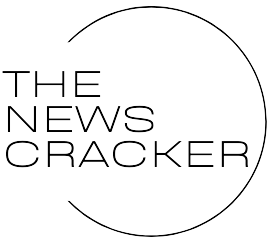I just finished reading a news story discussing consumable hemp products in Mississippi. The thrust of the article was whether products containing alternative cannabinoids, like delta-8 THC, are legal in the state if the alternative cannabinoids are derived from hemp. It is a lingering question that plagues lawmakers not only in Mississippi, but dozens of other states as well.
Mississippi’s state attorney general has concluded the state law prohibits the sale of any consumable hemp derivatives not yet given FDA approval. That would certainly cover delta-8, another synthetically derived cannabinoid. But the attorney general’s opinion doesn’t square with the understanding of some state lawmakers.
The differing opinions are the direct result of the federal 2018 Farm Bill and its legalization of hemp across the nation. Industry representatives maintain that products derived from hemp are still hemp, meaning they are legal under federal law. But the federal government has taken a different position, albeit a confusing one.
Sometimes Legal, Other Times Illegal
In 2021, the Biden Justice Department attempted to clarify its position on synthetic cannabinoids like delta-8. An official memo from the department declared that delta-8 and similar cannabinoids were not covered by the Controlled Substances Act (CSA) and its prohibition against delta-9 THC – the primary cannabinoid in marijuana and the one that causes the marijuana high.
The cannabis industry took this to mean that synthetic cannabinoids are legal. But in 2023, the DOJ provided further clarification. Via an email and a further review of the previous memo, the department determined that substances like delta-8 and delta-10 are only legal in their natural state. Those derived synthetically are not.
In simple English, alternative cannabinoids occur in every variety of cannabis plant, including hemp and marijuana. Those naturally occurring cannabinoids are not covered by the CSA. The problem is that they do not occur in large enough volumes to make extraction from plant material worthwhile. So instead, manufacturers synthesize them from CBD. According to the DOJ, these synthesized cannabinoids are not allowed.
What It Means to the States
States generally take the position that all hemp products are legal under the 2018 Farm Bill. But they are divided on the issue of synthetic cannabinoids. Think of it in terms of medical cannabis. Currently, thirty-nine states and the District of Columbia allow medical cannabis. Of them, thirteen have explicitly banned delta-8 THC.
Utah is one of those states. Utah’s regulations are such that even a person with a valid medical cannabis card cannot walk into Brigham City’s Beehive Farmacy and purchase a product with delta-8. The same holds true in all medical cannabis dispensaries throughout the state.
As for the remaining twenty-six medical cannabis states, the rules surrounding delta-8 THC and other synthetic cannabinoids vary. Some states do not try to control synthetic cannabinoids at all. Others are attempting to exert some control but have not yet figured out how to do it.
Another Gray Area
Unfortunately, what this all boils down to is yet another gray area in the cannabis space. And as usual, it is a gray area because federal and state laws conflict. It’s even worse in this case because federal regulators keep moving the goalposts. The most aggravating thing is that it doesn’t have to be this way. The rules could be clarified and reconciled if everybody would just get on the same page.
For now, delta-8 legality is all over the board. Hemp may be legal in all fifty states, but the question of synthetic cannabinoids continues to linger. I am not holding my breath for any sort of solution in the near future.

